The Fastest Lesson I Learned Abroad
When I first became a doctor abroad, I thought my biggest challenge would be medicine itself. I was wrong. The real challenge was understanding the people — patients, nurses, and colleagues — and how everything worked in a system completely different from home.
My early days overseas were filled with awkward moments: I greeted patients the wrong way, misunderstood charting protocols, and nearly delayed a referral because I didn’t know the hospital’s hierarchy.
If you’re preparing to become a doctor abroad, the faster you adapt to the culture and system, the smoother your journey will be. These lessons come directly from my own early missteps — so you can avoid them and settle in faster.
🌍 Lesson 1: Understand Local Culture — Beyond Politeness
Working as a foreign doctor means you’re not just practicing medicine — you’re entering someone else’s culture. What feels normal to you may come across as rude, disrespectful, or even confusing to others.
In my first few weeks, I noticed that patients in my new hospital rarely questioned my decisions — even when I invited their opinions. I later learned that in this culture, patients often defer completely to the doctor’s authority. In my home country, it was the opposite — open dialogue was expected.
💡 Quick Tips for Cultural Adaptation:
-
Observe before you act. Watch how senior local doctors communicate with staff and patients.
-
Ask nurses for insight. They understand patient expectations better than anyone.
-
Learn greetings and gestures. A simple local “thank you” goes a long way.
-
Respect hierarchy. Some hospital cultures are highly structured — learn who to approach first.
Cultural awareness builds trust faster than credentials. Once patients and staff feel respected, your life as a doctor abroad becomes much easier.
🔗 Related reading: Top Cultural Shocks as a Foreign Doctor in the Maldives
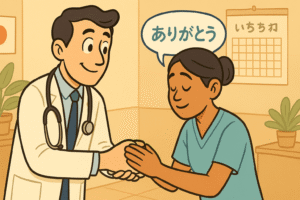
🏥 Lesson 2: Learn the System Early — It’s Not the Same Everywhere
Every hospital has its rhythm. When you move overseas, you’re joining an entirely new orchestra.
My first mistake was assuming medical workflow was universal. I used to order tests without knowing that only consultants could authorize certain investigations. I filled notes in the wrong format. And I missed a few internal referral deadlines simply because no one explained the system to me in detail.
🩻 System Basics Every Doctor Abroad Should Master:
-
Admission & Discharge Workflow — Who signs what, when, and how?
-
Referral & Consultation Process — Is it verbal, electronic, or written?
-
Medication & Equipment Access — Some drugs or devices might require senior approval.
-
Electronic Medical Records (EMR) — Every EMR has its shortcuts — learn them from nurses and interns.
Ask your seniors to walk you through one complete patient journey from admission to discharge. You’ll learn 80% of what you need in that one observation.
Applicability of working abroad for physicians
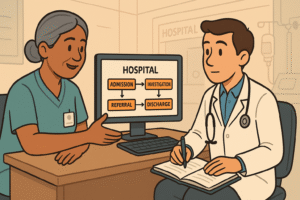
🧭 Lesson 3: Learn Through Observation, Not Assumption
One of the best ways to adapt quickly as a doctor abroad is to become a quiet observer during your first month.
I used to think taking initiative meant speaking up immediately. But sometimes, especially abroad, it’s wiser to watch first, act later. Every workplace has invisible rules — how people address seniors, how rounds flow, how handovers happen.
🔍 How to Learn the System Without Asking Every Time:
-
Volunteer to assist senior rounds even when not required.
-
Watch how others write their notes — down to the spacing and abbreviations.
-
Keep a small “adaptation notebook” — write down what you learn each day.
-
Ask for feedback after your first week — not your first month.
By week three, I could see my confidence returning. I wasn’t just learning medicine anymore — I was learning context.
🤝 Lesson 4: Build Relationships Early — They’re Your Lifeline
In your home country, you might know how to get things done by experience. Abroad, you rely on people.
It took me months to realize that forming good relationships with nurses, technicians, and administrative staff was more valuable than memorizing any policy. A friendly conversation at the right time got lab results faster, equipment located sooner, and procedures scheduled more smoothly.
☕ How to Build Your Support Network:
-
Learn everyone’s name on your ward — and use it.
-
Ask for advice sincerely, not as a checklist.
-
Buy coffee for your team once in a while — small gestures go far.
-
Show gratitude after shifts; appreciation breaks barriers.
These connections are the foundation of success for any foreign doctor — especially when the system feels overwhelming.
🔗 Read next: How I Manage Stress as a Doctor Working Overseas
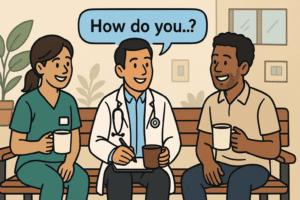
📋 Lesson 5: Accept That Confusion Is Part of Growth
There will be moments when you feel like you’re starting from zero — and that’s okay.
The truth is, every doctor abroad goes through a learning curve. The difference between thriving and burning out lies in how you respond. Instead of seeing confusion as failure, treat it as a temporary phase of adaptation.
When you embrace that mindset, every day becomes a chance to grow.
Remember: Medicine is universal — but systems are local.
🧩 Summary — How to Adapt Fast as a Doctor Abroad
| Key Area | Common Mistake | What to Do Instead |
|---|---|---|
| Culture | Assuming “polite” is universal | Observe and mirror local norms |
| Workflow | Following home-country systems | Ask for detailed walkthroughs early |
| Communication | Overexplaining or under-asking | Learn what tone is expected |
| Relationships | Staying isolated | Build a network from week one |
| Growth Mindset | Feeling lost = failure | Confusion = progress |
Adapting quickly as a doctor abroad doesn’t mean being perfect — it means being observant, humble, and proactive.
Once you understand the local culture and hospital system, you’ll find that your medical knowledge fits naturally into place. You’ll not only work more efficiently but also connect more deeply with your patients and colleagues.
💬 Final Thoughts
Every doctor abroad starts out feeling unprepared. I did too. But the key isn’t avoiding mistakes — it’s learning faster than they can slow you down.
So if you’re packing your bags for your first overseas post, remember this simple mantra:
“Observe first. Ask often. Adapt always.”
Continue Reading : 10 Mistakes I Made as a Doctor Abroad — So You Don’t Have To
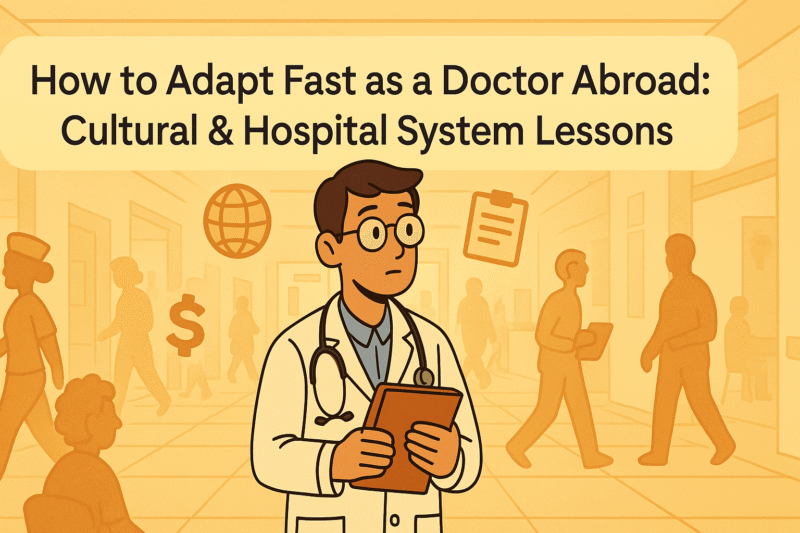
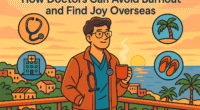


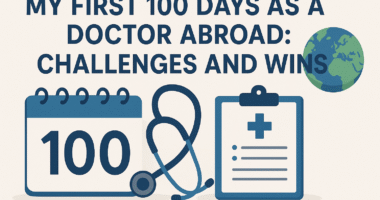
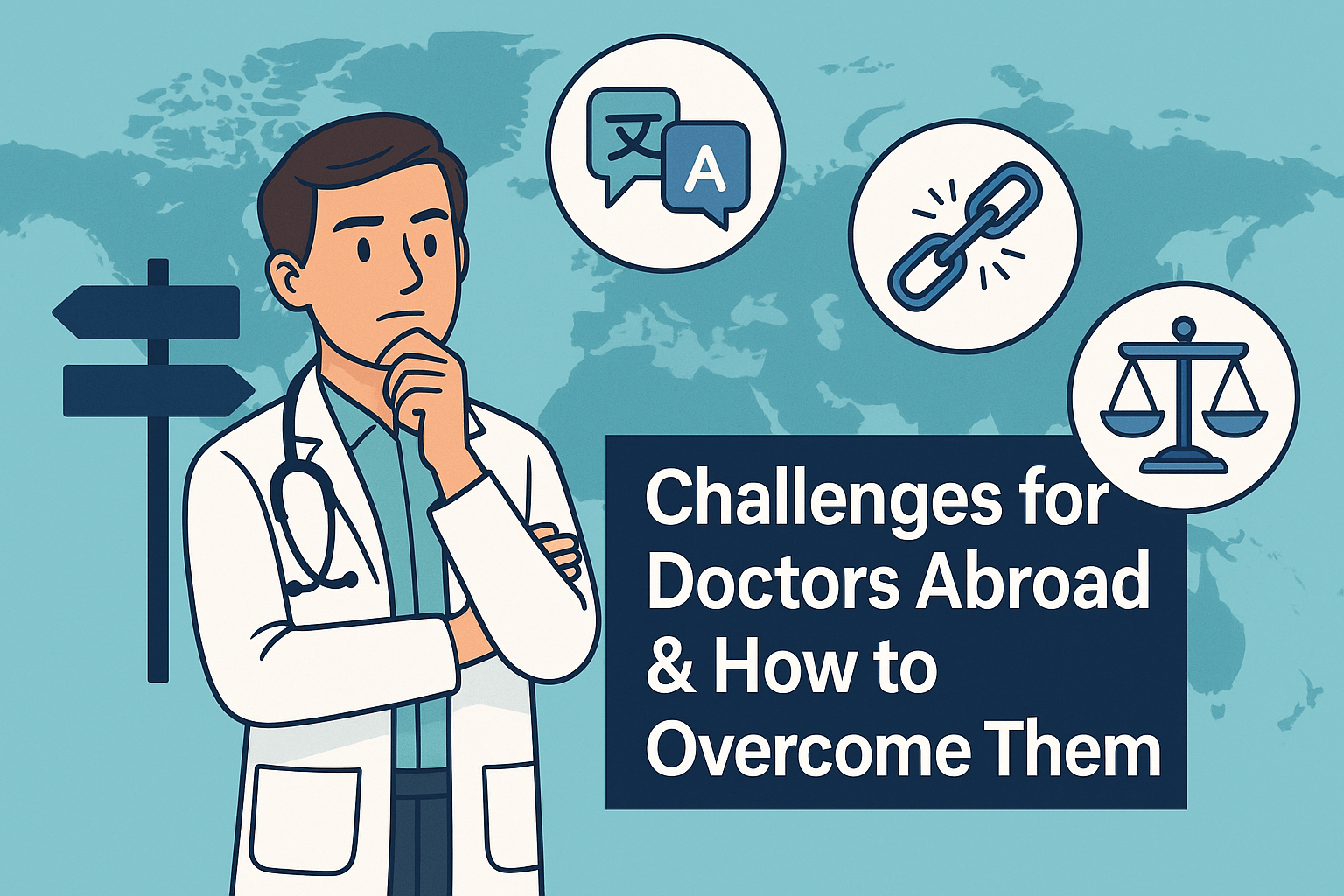




1 comment
Thanks